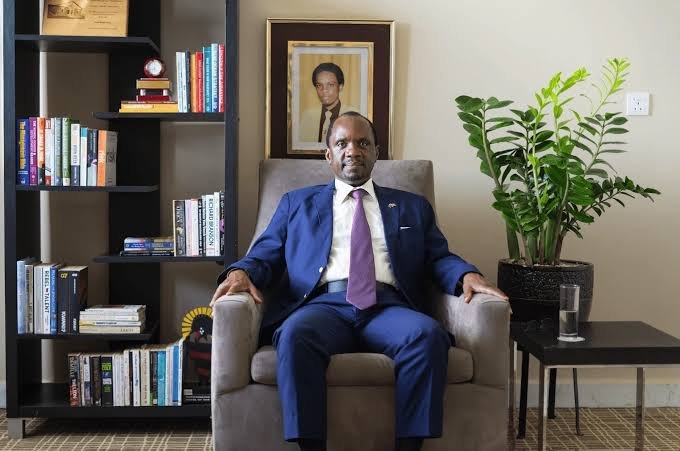Ugandan Tycoon Patrick Bitature Wins Temporary Reprieve in $10 Million Loan Battle
KAMPALA – Uganda’s Supreme Court has granted multimillionaire businessman Patrick Bitature a temporary lifeline in his protracted legal battle with South African lenders, issuing an interim order that halts the enforcement of a Court of Appeal decision that had cleared the way for collection of a $10 million debt. The ruling provides breathing room for one of Uganda’s most prominent entrepreneurs as he fights to protect his extensive business empire from potential seizure.
The Supreme Court’s intervention came as Bitature and several of his companies faced imminent enforcement action from Vantage Mezzanine Fund II, which had been poised to collect on the contested loan following the appellate court’s ruling. Justice Elizabeth Musoke emphasized that the stay was necessary to preserve the status quo and prevent irreparable damage while the Supreme Court considers the full application in the high-stakes financial dispute.
Legal Reprieve and Judicial Reasoning
The Supreme Court’s interim order represents a significant procedural victory for Bitature, suspending the appellate ruling tied to Civil Application No. 305 of 2025 that had threatened his business holdings. The ruling gives both parties additional time to prepare and present further arguments in the appeal, effectively putting the debt collection process on hold until the Supreme Court makes a final determination on the matter.
According to the initial report from Daily Monitor, Justice Musoke’s decision was grounded in the need to prevent potential irreparable harm to Bitature’s business interests while the legal process runs its course. The ruling acknowledges the complex nature of the dispute and the substantial financial interests at stake for both the Ugandan businessman and the South African lenders.
“Uganda’s Supreme Court has issued an interim order halting enforcement of a Court of Appeal decision that cleared the way for collection of a $10 million debt from businessman Patrick Bitature and several of his companies. The stay gives the parties time to pursue further arguments in the appeal.”
The legal battle has attracted significant attention within Uganda’s business community, where it is seen as a test case for how Ugandan courts handle complex international financial disputes involving prominent local entrepreneurs. The outcome could set important precedents for future cases involving foreign lenders and domestic borrowers.
This high-profile case highlights the complex intersection of international finance and local business operations in Uganda. For comprehensive coverage of this and other important business stories, readers can follow updates through reliable sources like African News Desk’s Uganda news section, which provides detailed reporting on matters affecting the country’s economic landscape.
Origins of the Financial Dispute
The roots of the current legal standoff trace back to 2014 when Vantage Mezzanine Fund II provided a $10 million mezzanine loan to Simba Properties Investment Co., a key component of Bitature’s diversified Simba Group. Mezzanine financing typically combines elements of debt and equity financing, often carrying higher interest rates and sometimes including equity conversion features that can be contentious in default scenarios.
The relationship between the parties deteriorated when Vantage later claimed that the loan had not been repaid according to the agreed terms and initiated arbitration proceedings before an International Chamber of Commerce (ICC) panel. This international arbitration mechanism is commonly used in cross-border financial disputes but has raised questions about its interaction with domestic legal systems.
“The case stems from a 2014 mezzanine loan when South Africa’s Vantage Mezzanine Fund II advanced $10 million to Simba Properties Investment Co., part of Bitature’s Simba Group. Vantage later claimed the loan had not been repaid as agreed and brought the matter before an ICC arbitration panel.”
The legal journey has been protracted and complex. Uganda’s High Court initially provided some protection to Bitature in 2023, ordering that mortgaged properties and company shares remain unchanged while enforcement was pending. However, the Court of Appeal’s decision in August 2025 struck out Bitature’s challenge, ruling that Uganda’s arbitration law did not permit such an appeal. This ruling had effectively opened the door for Vantage to proceed with collection efforts until the Supreme Court’s recent intervention.
According to additional reporting from Billionaires Africa, the temporary relief comes at a critical juncture for Bitature, whose business interests span telecommunications, energy, hospitality, and real estate sectors. The Simba Group employs thousands of Ugandans and represents one of the country’s most significant homegrown business success stories.
The case raises important questions about the nature of mezzanine financing in emerging markets and the legal protections available to borrowers when disputes arise. Financial experts note that such financing arrangements, while providing crucial capital for business expansion, can create complex legal situations when economic conditions change or business performance fails to meet projections.
As the legal process continues, both the Ugandan business community and international investors are watching closely. The Supreme Court’s eventual ruling is expected to provide important clarity on the enforcement of international arbitration awards in Uganda and the rights of borrowers in complex financing arrangements. For now, Bitature and his companies have gained valuable time to mount their defense and potentially negotiate a resolution that preserves his business empire while addressing the lenders’ legitimate claims.
The outcome of this case could have far-reaching implications for Uganda’s investment climate, potentially influencing how foreign lenders approach financing Ugandan businesses and how local entrepreneurs structure their international borrowing arrangements in the future.


